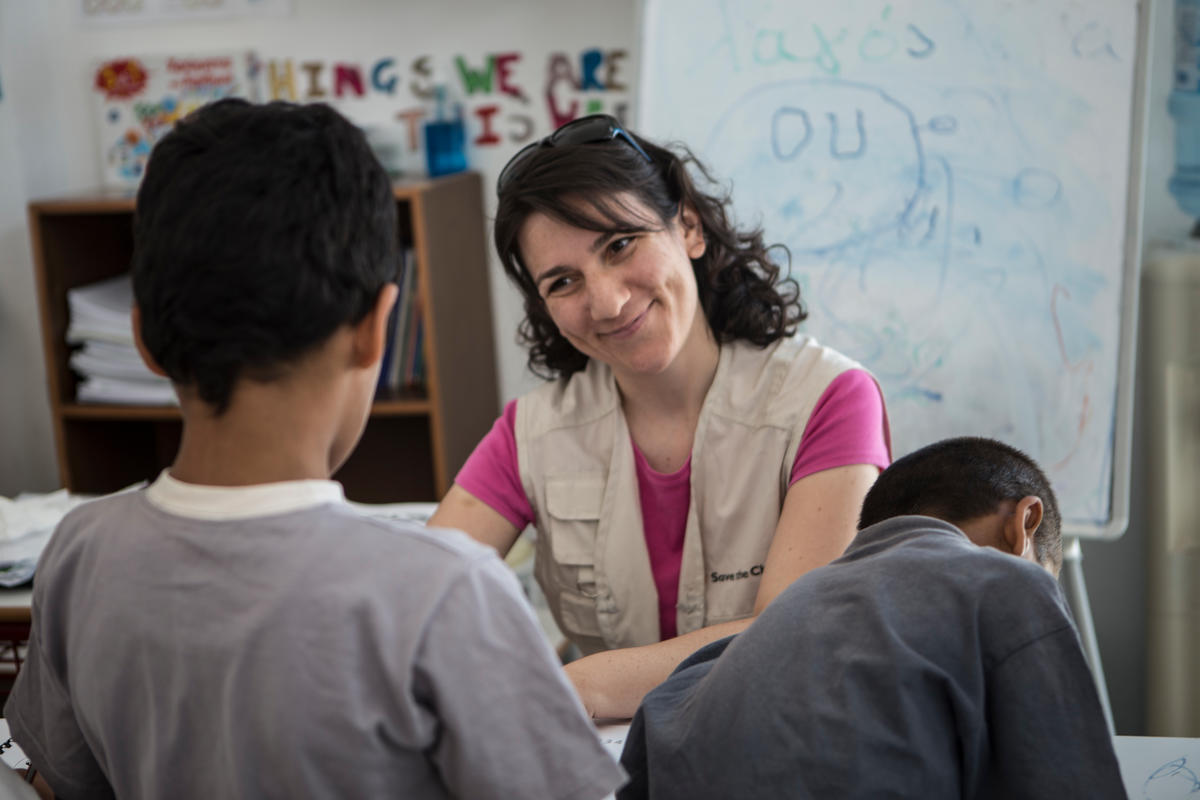Mapping mental health and psychosocial support practices

“It’s a jungle out there” is a phrase familiar to many educators – sometimes thinking of the situation in the playground, but often of the massive amount of teaching materials, approaches, systems, and traditions suggesting different ways to increase the academic success, well-being, and social belonging of their students. Identifying the most effective of these practices can be a challenge.
REFUGE-ED aims to identify and promote effective practices within education and mental health and psychosocial support for migrant and refugee children, including unaccompanied minors.
An extensive literature review has looked at practices within both education and mental health and psychosocial support (MHPSS), where evidence of social impact has been identified. The effective practice is defined through the requirement of solid evidence (quantitative and/or qualitative) of the social impact achieved by the respective practice, both in education and MHPSS. The social impact required from these practices had to reflect the improvement in at least one of the following dimensions related to migrant students to be considered for its inclusion in the catalogue: academic success, well-being and/or social belonging.
Within the field of mental health and psychosocial support five categories were identified:
- Creating a safe space
- Building capacity among school staff
- Cognitive behavioural therapy
- Expressive therapy
- Psychological staff in schools
Creating a safe space
Feeling safe is fundamental to academic success, wellbeing, and social belonging. Establishing a safe space in a school or other educational setting is not a formal and defined intervention or programme. It is an approach in which conscious effort is put into making the school environment feel safe and concerns the physical environment as well as the values and overall running of the school.
‘Safe’ schools are likely to help to improve student outcomes across a wide range of domains, including:
- Improved academic performance.
- Reduced feelings of exclusion
- Higher self-esteem
- Fewer problems with school personnel
- Greater sense of belonging at school
- Increased social-emotional competencies.
Building capacity among school staff
Building capacity among school staff to support students’ mental health and psychosocial well-being is important for sustainability. Programmes which are integrated in the mainstream curriculum and delivered by school staff are more likely to be effective in terms of long-term student outcomes than activities delivered by outside experts.
Cognitive behavioural therapy
Cognitive behavioural therapy treatment usually involves efforts to change thinking patterns. Strategies might include using problem-solving skills to cope with difficult situations and learning to develop a greater sense of confidence in one’s own abilities.
Cognitive behavioural therapy is based on the concept that thoughts, feelings, physical sensations, and actions are interconnected, and that negative thoughts and feelings can trap a person into a vicious cycle. It aims to help deal with overwhelming problems in a more positive way by breaking them down into smaller parts.
Trained school staff (e.g., school mental health professionals, trained teachers, nurses) or external mental health professionals (e.g., non-school psychologists, social workers) use therapeutic approaches outlined in an intervention protocol to engage with students in individual or group settings.
Expressive therapy
Art, music, and dance are forms of creative expression that can help individuals to process and cope with emotional issues. Arts and music therapy is a way to reconstruct meaning and, work with traumatic experiences and retell stories, address grief and loss and rebuild social connections.
There is increasing evidence that creative arts therapies can address distress not otherwise accessible to more traditional talking therapies, which rely on higher level cognitive development. For the purposes of this article, we have categorised these practices as ‘expressive therapy’.
Psychological staff in schools
School psychology is concerned with children, youth, families, and the schooling process. School psychologists are prepared to intervene at the individual and system levels, and develop, implement, and evaluate programmes to promote positive learning environments for children and youth from diverse backgrounds, and to ensure equal access to effective educational and psychological services that promote health development.
Distinct from building capacity amongst teachers and other school staff, this approach involves implementation of direct psychological/psychosocial interventions from trained mental health professionals such as counsellors, nurses trained in mental health, and school psychologists. The literature review revealed that there are a range of principles that such professionals should bear in mind when working with migrant and refugee children.
